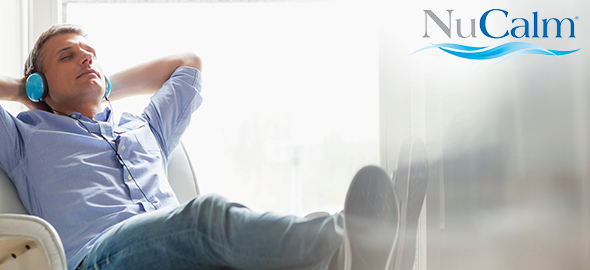The Effects of Stress in Sport – NuCalm
February 21, 2017
That stress and anxiety could well be amplified if one had the extra thought of taking part in an elite level sporting competition shortly after arriving at your destination.
With the UEFA Champions League underway, Europe’s football elite will be flying across the continent to play important fixtures just days apart from their equally important league matches.
Though care is taken to minimise player’s worries over travel concerns, the impact of leaving the comfort of home could be exacerbated by any number of factors. As sport stars are put under increasing pressure these days, from demanding fans, huge financial contracts, and a 24hour rolling news cycle, it’s easy to understand that stress can play a big part in a modern athlete’s life.
Last year at the Rio 2016 Olympics, Team GB went to great lengths to mentally prepare their athletes for the Games as much as possible. This had the greatest dividends in the pool, where British swimmers collected the best Olympic medal haul for the country since 1908.

Bill Sweeney, CEO of Team GB, gave an insight to this author about how the attention to detail in preparing the athletes was about much more than just coaching them to be the fastest in the water.
“The attention to detail is amazing,” Sweeney said. “If you look at the swimming, I went to Belo Horizonte on July 23 and you saw how the coaching team there was gradually changing their training routine and their sleeping patterns.
“So by the time they left Belo Horizonte they were training from 10 to 12 at night, which is the same time they would compete in Rio, so over that extended period of time their sleeping patterns changed, their eating patterns changed, and their body was used to switching on and competing at 10 o’clock at night.
“That was done extremely well: same sort of thing for the track and field athletes as well. But the attention to detail in Olympic sport is phenomenal and I think the reason is, if you look at swimming, there were seven races in swimming where we came fourth and in five of them if you add up the consolidated time it was 0.64 of a second across all five races.
“So that was the difference between fourth place and podium. So things like that and just the fingertip difference when you get in the pool is everything.”
Nowadays, there is a real move to focus not just on the physical exertion of sport but the mental exertion. Sports psychology has been beneficial to many over the past 20 years, in particular two-time Olympic gold medal cyclist Victoria Pendleton spoke openly in her autobiography about how psychology helped her reach the heights she did.
But not all athletes can or would want to sit down and open up their mind to someone.
Technology might be one aspect however of physically inducing a relaxed state in an athlete, so their mind is at the optimum point to focus on the next match, race or competition.
That’s what Solace Lifesciences say they can do with their patented NuCalm product, and company CEO James Poole insists that stress is much more of an inhibitor to athletic prowess than many realise.
“NuCalm offers a very unique proposition for athletes,” he said. “If you can restore and slow down, and you can slow down cortisol and you can slow down adrenaline, all we’re doing is kind of levitating them in this deep healing zone.
“And by doing that, you’re basically facilitating the body to do what it naturally wants to do which is create a diaphragmatic breathing pattern to increase oxygen and red blood cells around the body.
“So the value of that is simple to an athlete: improve muscle recovery, improved healing. So healing in football and soccer, it’s all about nagging injuries, inflammation down in the legs and you get on NuCalm and it resolves that issue.”

Every technological innovation in sports science is greeted with a healthy degree of scepticism, particularly at elite level. However, NuCalm is already making waves across a variety of sports in the US – and the company now has sights on broadening into Europe.
Poole explains that the product is already being used by 29 professional sports teams in the US, with one team in particular being an interesting example of the science of NuCalm.
“Primarily out biggest partner has been the Chicago Blackhawks in hockey,” Poole said. “They got involved with us about five years ago, and the adoption phase was pretty fast. They started out with eight systems, then they made it to the playoffs and they upgraded to twelve systems and in the playoffs it’s so different.
“There, you play a seven-game series and you play the same team every other night or every night, and then you do that for four successive series, it’s a brutal battle of attrition. So if we can recover, restorative sleep, deep healing, manage stress, we’re going to help that process.
“By the end of the first season they had won the Stanley Cup, and when we interviewed them they credited NuCalm in helping them win the Stanley Cup. That’s a huge endorsement.”
With more and more expected from sport stars at elite level, any new innovation promising to increase relaxation and relieve stress is bound to find welcoming arms.




